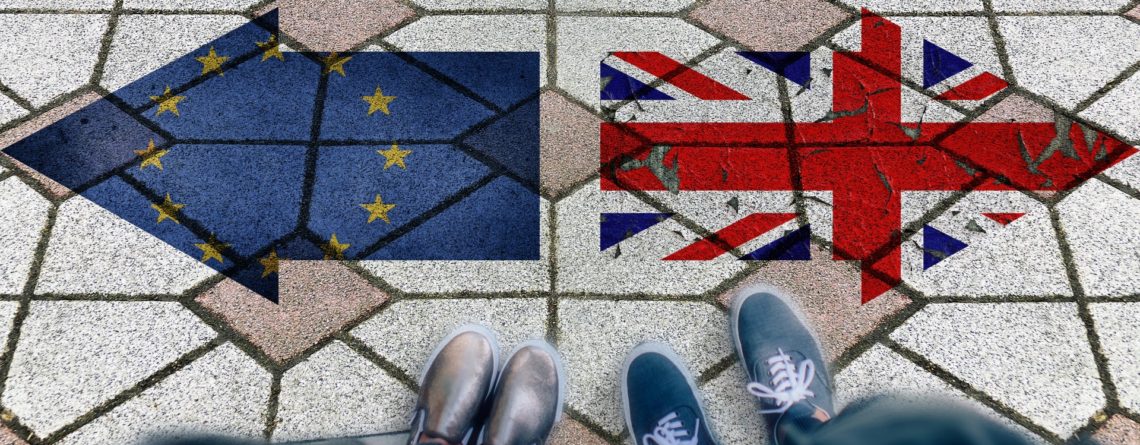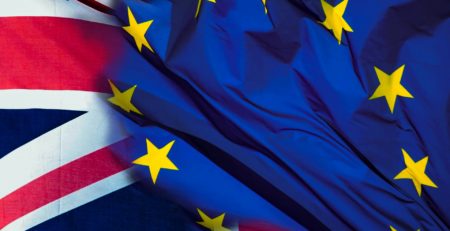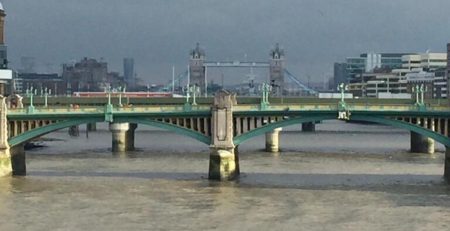After B(rexit) day
Preface to the First Issue of the International Affairs Spotlight
Dear reader,
Today is a happy day for all of us that have worked in this project: we introduce you to the very first number of the International Affairs Spotlight.
The Spotlight has two main objectives: first, to bring transnational discussions to the public debate; then to fuel that debate with fresh ideas.
In a globalized Europe, where Portugal is one among many countries to fight for relevance in a worldwide competition, transnational relations play a key-role. The flow of ideas is now inherently transnational, with rapid changes and constant clashes. Politics became globalized, each decision and each election playing a major role on every country. Who can ignore the effect that US elections have had in the global context? What can individual European countries do when faced with the rise of a growing China? How can one single country, alone and without allies, face Russian external politics? This interconnected world is our reality, whether we like it or not, and the next step must be to discuss it, to criticize it if necessary, but mostly to generate the debate that will ultimately lead to a better understanding the emerging balance of power. The Spotlight will bring together academics and politicians, entrepreneurs and businesspeople, young and old, to enter the debate on the role of transnationality and international relations in today’s world.
However, to generate debates within contained bubbles of agreement is a challenge. People discuss, but seldom disagree, as they remain inside their bubble networks, with friends who think, say and act the same. The Spotlight will be different. It is necessary, to provide an honest debate on global challenges, and to come up with creative and acceptable solutions on how to better solve them.
In each issue we will put the spotlight on a specific topic and invite professors and students, individuals, entrepreneurs and politicians to provide their views on the debate. We decided to start big. From all the multiple transnational challenges that we face today, there is one which has dominated Europe for the last three years, that has consumed and divided the public opinion, dethroned and elected prime-ministers based on continuous promises of an Exit to come.
When I think of Brexit, I always think of Monty Python. From the many genius movies and shows of those bards of comedy, my favorite has always been “The Life of Brian”. The movie tells the alternative story of a different Messiah, much more of a common man, fustigated by the difficult times of ancient Galilea. Through Brian we understand politics, religion and activism, all following his troublesome passage as a quasi-Jesus who never quite makes it. And we laugh a lot throughout. From all the different sketches, it is the famous “What have the Romans ever done for us?” that always comes to my mind.
In that sketch, the dissident Jewish community, sick of being mistreated by the Roman conquerors, devises a plan in a secret meeting. They will kidnap Pilate’s wife and end the misery they have faced. All of this is then superbly justified with the pain inflected by the Roman empire since the times of “our fathers, fathers’, fathers’, fathers’” and summarized in the topical question: What have the Romans ever done for us? The rest of the sketch introduces the irony: the more they pose this obvious question (for which the answer could only be nothing!), they realize that the imperialist Romans have granted them a variety of modern comforts, from aqueducts to sanitation, from roads to irrigation, from wine to education and… general peace.
The parallel with Brexit is evident. The British people have taken a choice to leave the European Union, through a highly contested referendum, with campaigns of “What has the EU ever done for us” storming the country. The “conspirators” this time were the controversial leaders of UKIP and many tories, who galvanized a large share of British people against the EU’s influence. After all was set and done, and the so desired Brexit-result was achieved (even if by a margin of 2 per cent), Nigel Farage, UKIP’s leader, stepped away, confident that bureaucrats of Downing Street would now deliver its Messianic promise of a free and sovereign United Kingdom. It happens that, as it turns out, choosing to leave the EU is easy… to do it is harder. The reason why it is so difficult to leave comes back directly to Monty Python and to The Life of Brian. What happened was that when the British Government took the task in practical manners, they soon started asking the same questions as did the Jewish dissidents in that movie. Quickly they realized that over half of the British legislation was EU driven, through numerous directives, regulations and decisions. They realized that they received substantial funds from the EU. They grasped the dimension of the common market and the benefits to exports. They felt the potential flight of multinational companies from the British territory upon Brexit. In sum, they soon realized what the answer to the question “What has the EU ever done for us?” really was: a lot.
In this issue, our guest authors ask this same question in multiple ways and from different points of view. They explore how Brexit has been shaped, the political process leading up to it, the future perspectives for UK and the world we can expect from a decision that seems ever postponed.
Catarina Leão explores the upcoming elections and how the Brexit discourse has completely monopolized them. As Catarina puts it, the upcoming elections will play a fundamental role much beyond the Brexit scenario. Nonetheless, Labour’s opposition has been plagued by confusion and misleading proposals, opening the scene for the rise of Liberal Democrats and for the destruction of the traditional British bipartisanship. Her considerations invite us to think outside of the strict Brexit discussion and to consider exactly how Brexit can completely reshape British politics, maybe forever.
Carlos Coelho, a former member of the European Parliament, shifts the discussion to the effects of Brexit on people. Although we often discuss the entire process as an economic and political challenge, we quantify how much it will cost and discuss how many governments will it take to get the job done, Carlos takes us back to what matters: the people. The UK, and London particularly, is home to an astonishing number of EU citizens who call that territory their home. And they do it because they were told that we were a Union and that borders meant only something for the outside world, not between sister nations. Here, Carlos Coelho makes a strong argument that the UK was always one step in-one step out. A cat that scratches the door to get out but that, once the door is open, looks back at the coziness of the house and hesitates. The problem is that the cat seems to ignore the millions that stand in the limbo.
Filipe Lowndes Marques looks at internal British cohesion and the fate of the Union (not ours but theirs). By analyzing the problematic challenge of the Irish backstop, Filipe puts forth the argument that the Brexit process might risk way more than just British credibility in the international scene. It is the United Kingdom, as a true United Kingdom, that might be put in jeopardy with the attempted exit. The ghosts of past confrontations and the stability of the Good Friday Agreement all play a crucial role in ensuring that there is a future for the UK as one single country. With Scotland’s independence movement building, with Northern Ireland and Ireland clashing over the proposed solutions and even Wales rejecting the government’s options will there be more than a United England after all is done?
Inês Domingos writes about the future economic partnership between the UK and the EU. In an increasingly changing world where trade and foreign investment work as a political power tools, that may turn out to the most important ingredient for the success of both the EU and the UK in the competition for global influence.
Nuno Sampaio takes us step by step on describing the succession of events leading up to the Brexit scenario. In his paper, we are confronted with the facts that some have forgotten, reminding us of the beginning of the long road with David Cameron and the referendum. Nuno Sampaio’s more profound analysis is however on the role of the parliament and on the balancing of powers between the executive and the legislative branches of government. In a country with such traditional parliamentary tradition, the author recalls that the power has shifted from the Crown to the Parliament, then from the Parliament to the Cabinet and only from there to the prime minister. This means that parliamentary sovereignty remains a key aspect of the Brexit discussions and should not be minimized by the changing executives.
Peter Nabney analyzes Brexit from three points of view, namely politically, economically and structurally. In his piece we find a critique of the ulterior motivations of Brexit, then revealed as misconceptions of sovereignty and economic autarchy, nothing else than a short-term “pipedream”. Peter alerts us to the dangers of a utopic Brexit whereby the relative importance of the UK, both in economic and international relations’ points of view, is considerably diminished with its exit. Either by the rising internal conflicts of secession of Ireland or Scotland, Brexit’s ultimate risk is the destruction of the United Kingdom as a whole.
Samuel de Paiva Pires explains Brexit as part of a deeper sentiment of longing. According to the author, a part of the British people still misses the old British empire and Brexit presented an opportunity to bring back those feelings once again. The UK has always been in a difficult relationship with the EU, Samuel argues, from deliberately ignoring opt-out clauses to human rights’ protections to the rejections of the Schengen area, but Brexit will not bring the benefits it has promised. It will rather leave the United Kingdom in a weaker position, externally less relevant in the global markets, and internally exposed to the risk of a collapsing Union.
We sincerely hope you enjoy this issue, not only because it represents the first of many, but because of the central and topical nature of the Brexit debate.












